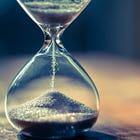In this article you will learn:
What nutrients are responsible for helping you sleep based on the research
What the best options are for each and where to get them
The Details:
Nutrition plays a major role in your sleep, and unfortunately there are countless nutrients that affect sleep quality. This is why a complete nutrition program along with testing and supplementation are so important for maintaining sleep quality long term.
Additionally, as you intervene in other areas like healing your thyroid, your adrenals or your digestive center, your body will make changes and undoubtedly need more
nutrition. These fluctuations are normal, but they may impact your sleep one way or another. The thyroid consumes a lot of resources for example, and as you regain whole body iodine sufficiency (I discuss this in my book) it will burn through calcium and magnesium which in turn may reduce the quality of your sleep temporarily until you change your dose.
Regular testing, taking high-quality supplements, knowing the story of your genes and having a healthy digestive center to process all of the nutrition are key strategies. In this article I discuss many specific supplements for sleep, but here I want to point out just how many nutrients are involved with creating what we perceive to be such a simple process:
Keep reading with a 7-day free trial
Subscribe to The Dance of Life Podcast with Tudor Alexander to keep reading this post and get 7 days of free access to the full post archives.






